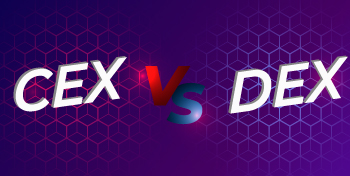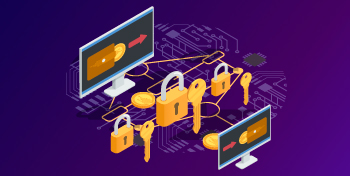Russian crypto space community has been watching controversies of establishment of crypto legal framework From almost a blessing to almost the hard labor, – the legislators were going from one extreme to the other. Finally, there is some certainty, which, as it turned out, looks not so optimistic.
Taxes
According to the Ministry of Finance, all operations with crypto should be subject to personal income tax. Accordingly, individuals must personally calculate and pay the tax. This means that if an individual sells crypto assets to another individual, the determination of the tax base on the income received falls on him, as well as the calculation and payment of tax. Still the Ministry of Finance relies on the provisions of the 41 article of the Tex code when determining income.
Thus, according to the general opinion, crypto should be the subject to taxation but it is still unclear in which way income received from crypto transactions or mining will be traced.
Regulation of digital financial assets
If we looked at the General provisions for crypto assets above, now let’s take a closer look at some of them.
The cryptocurrency act provides much more detail about the regulation of DFA (digital assets). The defining feature of a DFA is that there must always be an issuing organization responsible to buyers or holders. Accordingly, the law on cryptocurrencies regulates in detail the offer, issue, promotion and exchange of DFA, and introduces two special types of objects: issuing platforms and exchanges.
DFA rights
According to the definition above, DFA’s are digital rights that include:
- Monetary claim;
- Exercise of rights under securities;
- The right to participate in the capital of closed joint-stock companies (CJSC);
- The right to request the transfer of securities provided for by the decision to issue the DFA.
Interestingly, DFA does not necessarily need to be issued or exchanged through distributed registries. So what kind of crypto is this?
DFA release
The rights associated with specific DFA’s should be defined in the “grant decision”. Article 3 of the law on cryptocurrencies contains a detailed list of what should be included in the decision to issue. The decision on the issue must be made in electronic form and signed with a strong qualified electronic signature.
It is important to note that DFA’s that include rights related to securities, such as paragraphs 1 to 3 above, cannot be offered to the General public and are only placed through a private offer among persons known in advance. In addition, the Central Bank may decide that certain types of DFA can only be purchased by qualified investors (similar to accredited investors in the United States).
Platforms for issuing DFA
Issuance of DFA must be carried out through special information systems (issuing platforms). The operator of the issue platform must be a Russian legal entity included in the register maintained by the Central Bank of the Russian Federation. Article 5-9 of the law on cryptocurrencies provides a comprehensive legal framework applicable to the operators of issuing platforms, including liability, record keeping, anti-money laundering, requirements for management bodies, and other rules.
Given the volume of requirements, it is likely that only professional participants in the securities market will consider becoming issuing platforms. Simple mortals, even if they are seven spans in the forehead, there is nothing shining.
However, it is important to note that, unlike exchanges for DFA, issuing platforms are not subject to any specific capital requirements.
Sharing platform for crypto
Any transactions, including the sale, purchase, or exchange of crypto assets and other digital currencies, must be performed through an exchange operator that arranges such transactions by matching relevant orders or taking up positions on behalf of other parties.
Operators of exchange platforms must be included in the register maintained by the Central Bank. Among the many requirements that usually apply to financial institutions in Russia, exchange platforms have special capital requirements. Specifically, they must have an authorized capital and net assets of at least 50 million rubles (about 670,000 US dollars).
Regarding the sensational scandal around the popular (and very useful) Exchange platform, it, according to the requirements of the regulator, must develop rules detailing the flow of transactions, cybersecurity requirements, and some other aspects. Such rules must be submitted to the Central Bank for approval, since one platform can be both a subject of issuance and exchange.
Looking into the future

Of the 27 articles Of the law on cryptocurrency, only one is dedicated directly to the crypt (or DFA in the language of the law). In short, starting from 2021, the following rules will now apply to cryptocurrencies in Russia:
- Cryptocurrency is considered property;
- The issue and exchange of digital currencies will be regulated separately (a specific date has not yet been announced);
- A digital currency is considered to be issued or exchanged in Russia if the process uses Russian “information infrastructure objects”, including domain names and network addresses, or technical infrastructure located in the Russian Federation;
- Russian legal entities and individuals who are tax residents of the country cannot accept cryptocurrency as a reward for goods or services. This also applies to branches, representative offices and separate divisions of foreign companies that may be considered to arise in the event of an active marketing presence in Russia;
- It is also prohibited to promote information about the offer or acceptance of digital currency as a reward for goods or services in the Russian Federation;
- Any legal claims related to cryptocurrencies are subject to judicial protection only if the ownership of such digital currencies and transactions with them have been reported to the tax authorities (the exact procedure has not yet been determined).
Obviously, the Crypto Law recognizes the existence of cryptocurrencies, but prohibits their use as legal tender. However, issuance and trading are permitted under a framework that has yet to be developed.
The lack of dialogue between the state and business reduces the ability to adopt reasonable regulation of new markets. In addition, insufficient use by government agencies of “soft” tools, such as compliance guidelines for new market participants and new technologies, creates additional risks of unintentional violations of existing laws by enterprises (for example, ignorance of what taxes apply to mining). This, in turn, leads to an outflow of capital and reduces the competitiveness of the Russian economy.
Common obstacles to the development of the digital economy and business, including the development of blockchain technology and ITO campaigns, must be removed for Russia’s digital economy to flourish. It is also necessary to formulate an approach to reducing the risks of the state in relation to business violations of tax and commercial law, to exclude the possibility of using virtual currencies to launder money obtained illegally, and to conceal other crimes.
As for the regulation of the crypto-economy, the consolidation of such concepts as” token “and” cryptocurrency ” in the civil legislation of Russia is unlikely and, if it happens, may negatively affect the formation of a new market, because it is impossible to initially provide all the qualitative characteristics of these objects.
In the next few years, as part of the development of the industry, this approach will be developed by participants together with government agencies. For example, with regard to the definition of the term “token”, the position is taken that this is a property right within the meaning of article 128 of the Civil code, and therefore no further changes in the legislation are required. It seems that the concept of “cryptocurrency” will include other property (within the meaning of article 128).
Approaches should be developed to reduce the risk of KYC / FATF, and the erosion of the tax base. This could stimulate the development of the market by directly extending the legislation to new participants without subordinating them to the Federal law on banks and banking activities, and on the national payment system. It is necessary to develop an instruction that will clarify the procedure for taxation of operations with cryptocurrency and income from them.
The development of regulation of the cryptocurrency and token market should begin with soft measures aimed at raising awareness of the market among participants and regulators themselves.
Legislative work is underway on cryptocurrencies and their legalization, but so far, those who use cryptocurrency do so without the legal protection of the state. This is very bad. And those who develop laws have no idea what a crypto asset is. And this is even worse.
The draft law on digital financial assets proposes to consider cryptocurrency as a type of digital financial asset that is created and accounted for in the distributed register of digital transactions by the participants of this register, in accordance with the rules for maintaining the register of digital transactions. Dreadful stuff!
Based on this definition, it is impossible to identify the fundamental features of a new economic and legal phenomenon (cryptocurrency), which is necessary for regulating trade in the financial market. It is not clear what purpose the lawmakers of this bill are pursuing by applying a technocratic approach to cryptocurrencies. The technologies used to create cryptocurrencies can change significantly due to the rapid development of science and innovation. Its use as private non-fiat digital money in the global financial market represents a challenge to the global financial system.
Digital assets such as tokens and cryptocurrencies cannot be restricted by national legal frameworks. Therefore, in the legal sphere, it is necessary to use terminology that is used all over the world. In this regard, it seems inappropriate to use a “digital financial asset” (DFA) as a concept of combining tokens and cryptocurrencies.
There are proposals to make the information the subject of civil rights. But the concept of information is not the same as the concept of a digital asset used by companies. A reference to information without explanation, and without defining the limitations of its scope and purpose, is too broad for the purposes of applying civil law.
It is hoped that the crypto community and those authorities that understand the importance of the crypto industry in the formation of new financial norms and economic order will be heard, and the adopted legal framework will allow the further development of the crypto space in the Russian expanses.

